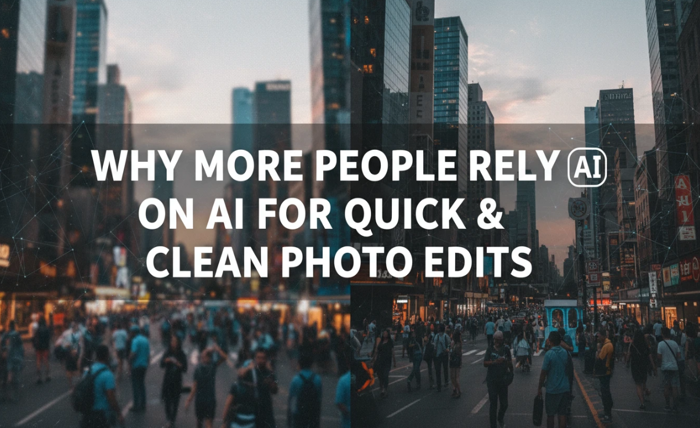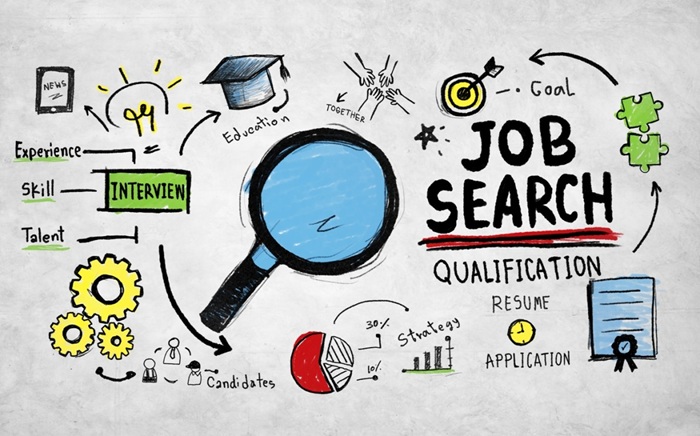Did you know that an AIML course could be the turning point of your career?
AI and Machine Learning (ML) are no longer just futuristic concepts taken from sci-fi movies, but have become the primary tools of how businesses operate in various sectors.
One of the most significant changes that the Artificial Intelligence has made to the business world is to automate the customer support process by AI chatbots and virtual assistants who now work 24/7. They are quick in their responses and tailor the experience to each customer. Consequently, a great burst has occurred in the demand for AI and ML skills, since it is widely known that companies are generating huge amounts of data on a daily basis. These companies are asking for people who can discover the trends and thus make the process of decision-making easier.
What this article will guide you through:
How AI and ML-driven changes affect the roles of employees in the traditional corporate sector
- The essential skills that will help you thrive in the AI-driven workplace
- The preparation steps for careers transformed by AI
- How AI contributes to the creation of new jobs instead of just disappearing jobs
Eventually, those companies that successfully integrate AI and ML into their daily routine will be the leaders in the digital era. The real question is – are you ready?
How AI and ML are changing job roles
AI and ML technologies continue to reshape the workplace and are essentially the main reasons for the changing of traditional roles. According to McKinsey, research on automation that impacts the way people work, companies have the chance to raise their productivity by 20%.
Document handling takes half of the day for current office workers, and they are involved in manual data entry tasks for 10% of the time. It is quite obvious that these types of work are automation candidates. Role changes have gone to different industries:
AI chatbots are created to take those customer service tasks that need direct interaction with customers.
Automation has taken over data entry and administrative tasks, which has resulted in fewer people working in these positions.
Robots are literally taking over the dull, boring, and physically demanding tasks on manufacturing jobs and are contributing greatly to the changing face of manufacturing by doing the manual tasks that originally required human labor.
AI is being used as a way to simplify banking and insurance operations.
The labour market is transforming, and there are new jobs that were not there before. The World Economic Forum asserts that AI will create 97 million new jobs. Some of these new positions will be:
- AI trainers and ethics experts
- Human-AI teaming managers
- AI prompt engineers who optimise system inputs
- Machine learning specialists
Due to the human-AI cooperation in work nowadays, an AIML course has become quite significant. These hybrid teams allow the creative and strategic thinking of people while AI takes the data-intensive tasks. People with AI skills can get a salary that is up to 25% higher than that of traditional roles. That is why taking AI and ML courses is a smart move if you want to take your career to the next level.
New skills needed in the AI era
AI is changing the working environment of professionals and the skills that define success are changing at an unprecedented pace. A study by McKinsey points out that AI will change about 10% of the tasks in 80% of the jobs. So by 2035, 60% of employees will experience the transformation of 30-40% of their job activities.
What the workforce of tomorrow needs are not only technically skilled workers but also workers with human capabilities:
- Ability to work with data and make sense of it
- Basic understanding of machine learning
- Knowledge of prompt engineering
- Understanding of AI Ethics
- Skills to cooperate across functions
- Human Skills
- Creative and futuristic thinking (one of the top three emerging skills for any field)
- Critical thinking in reviewing AI outputs
- Emotional intelligence (87% of employees say empathy is what makes a leader better)
- Adaptability and continuous learning mindset
- Strategic thinking and problem-solving
The World Economic Forum writes that 83% of employees are of the opinion that human skills will become even more important as AI progresses. An AIML course offers a well-structured way to develop these skills for professionals who want to be safe from the risk of career obsolescence in the future.
Despite all this, the possession of technical knowledge alone will not be enough, as indicated by the British Council report which states that 83% organisations now equally emphasize technical and soft skills training. The skill of working together by crossing traditional departmental boundaries has become the key to the successful implementation of AI.
Winning in the AI era is not about challenging the machines. It is about nurturing those human skills which cannot be replaced and can operate in tandem with them.
How to prepare for AI-driven careers
The advent of AI technologies has made it necessary for people to constantly learn new skills and upgrade the old ones. Even through there has been a decline in the total number of job postings, the number of AI-related jobs increased by 7.5%.
How to be prepared for AI:
Have the correct education – Choose an AIML course that not only teaches you the theory but also gives you the practical side. Good programs will require you to complete projects that have practical applications.
Enhance your technical skills – Learn programming languages such as Python, R. Get acquainted with statistics, and linear algebra. By following learning paths offered by Google Cloud, Microsoft, or other specialized institutions you will gradually build a strong foundation.
Acquire real-world experience – Build AI projects, engage in Kaggle competitions, and be a part of open-source projects.
Be aware of the moral aspect – The only way to be a part of the AI future is to understand the ethics of AI and adhere to ethical principles.
Develop a habit of learning – There are different platforms such as Notion or Obsidian which you can use to organize your AI learning and make it easily accessible.
One learns much faster if one is in an AI community. There are various ways through which you can connect with people who are at the same level as you or working in the same field: Slack channels, Discord groups or professional meet-ups. Besides that, this networking gives you a chance to have face-to-face meetings with industry professionals and learn about cutting-edge trends.
Both technical and people skills of an employee are, according to the organisations, equally important. The research shows that 86% of the decision-makers consider taking AI and ML course as a means to be on a par with the latest trends.
Conclusion
The incorporation of AI and ML in industries is a huge change for professionals at any level of their careers. The people who enhance both their technical and interpersonal skills will become the winners. The case is not that AI will replace humans entirely in the workplace. Rather, it is a new workplace model where human-machine collaboration is the norm.
Those are the key points that can help you grow professionally:
AI changes affect almost every industry and create both challenges and opportunities
Technical skills such as data literacy and a basic understanding of machine learning are the cornerstones of being future-ready
The human side of the brain like creativity, critical thinking, and emotional intelligence are the spheres in which AI cannot reach.
Just by studying AIML, you can keep your career going in the right direction in a simple and efficient manner.
Additionally, if you become active in the community and undertake real projects, your learning process may turn out to be more efficient.
Artificial intelligence will change your work completely. The most important question is how fast you will be able to accommodate these changes. On the technical side of AI and on its business applications as well, more and more companies are seeking employees who have knowledge. The time you spend on good AIML courses today will be your ticket to higher-paying jobs tomorrow.
The change is already happening. Will you be the one to direct the AI-driven future?







